History of The Best Picture Oscar: Who Won And What We Remember
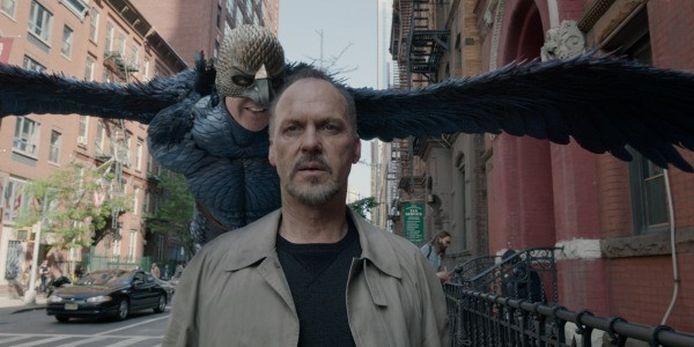
Massive film lover. Whether it's classic, contemporary, foreign, domestic, art,…
Awarding movies with titles like “Best Picture” is a bit of an overstatement when you consider what goes into making a movie. And when you look through the winners over the years it’s frequently a surprise when you see who won, and the films that got snubbed. For example, 1998 is the year when Steven Spielberg shocked us with his WWII movie Saving Private Ryan, and yet Shakespeare in Love walked away with the Oscar for Best Picture. And this pattern repeats itself more often than not, if you look at the timeline.
DISCLAIMER: The intention of this article is not to argue or gripe over alleged “snubs” by the Academy. The idea is to see what has endured in the memories of movie goers over the years. Disputing what film won, and which film is more common is more of a way to examine a pattern or trend among Best Picture nominations. Long story short: this isn’t a gripe piece but a curiosity regarding the sustainability of certain films.
Given the sustainability of the first six Best Picture Winners (Wings, The Broadway Melody, All Quiet on the Western Front, Cimarron, Grand Hotel, and Cavalcade) we will begin in 1935, at the eighth Academy Awards.
1935 – Winner: Mutiny on the Bounty
What we remember: Captain Blood
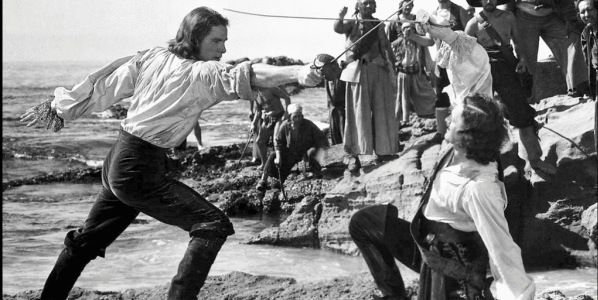
Mutiny on the Bounty is indeed a classic and has been remade and adapted multiple times over the years, but Errol Flynn’s swashbuckling adventure yarns are still entertaining people after all these years.
1936 – Winner: The Great Ziegfried
What we remember: Mr. Deeds Goes to Town
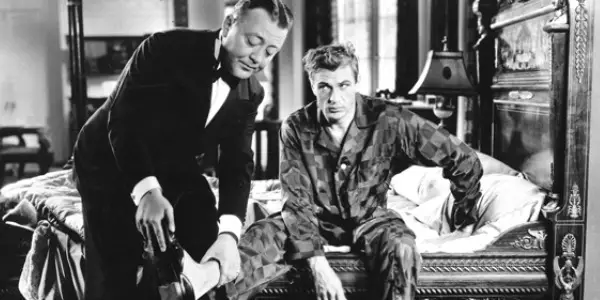
A charming entry from classic director Frank Capra with an accessible story of humanity that always rings true. Mr. Deed Goes to Town has had an active life as a film over the years, spawning a remake in 2002 with Adam Sandler and a television series. As far as popularity contests go Mr. Deeds would most likely win over Ziegfried.
1937 – Winner: The Life of Emile Zola
What we remember: A Star is Born
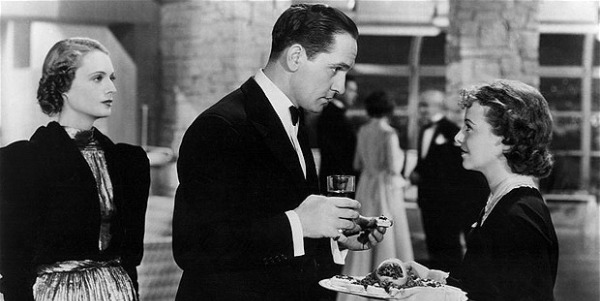
This early Technicolor classic by William Wellman is also the subject of remakes as well as inspiring similar stories, but this original always hits home. Influential on a technical and substantial level as it is one of the earlier “show business” movies.
1938 – Winner: You Can’t Take it with You
What we remember: The Adventures of Robin Hood
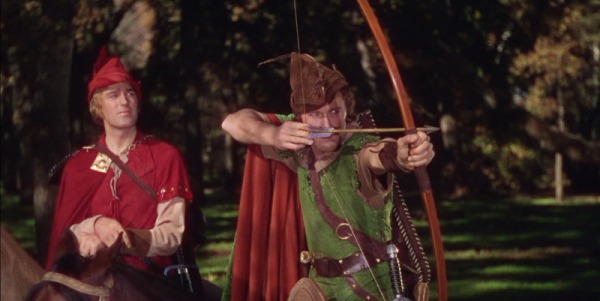
A consistently satisfying adventure yarn for cinephiles as well as Robin Hood completist. And for good reason, it’s a dashing, lively and luxurious looking movie from the golden era of Technicolor .
1939 – Winner: Gone with the Wind
What we remember – The Wizard of Oz

Two major classics (Gone with the Wind, and The Wizard of Oz) in one category, but as far as popularity in modern culture is concerned The Wizard of Oz takes the cake. The film which has been remade into countless film and TV adaptations is a mainstay in the film and media world.
Now, on to the forties!
1940 – Winner: Rebecca
What we remember: The Great Dictator
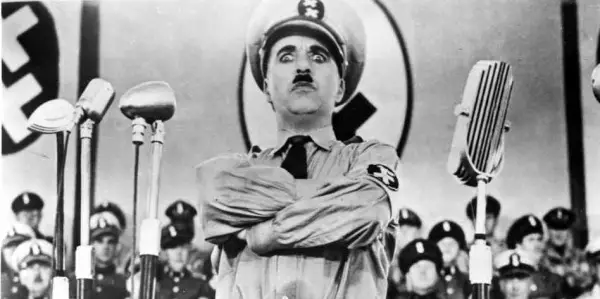
By 1940, Adolf Hitler was one of the most feared individuals in the world, and what does Charlie Chaplin do? Make an epic-length parody of his conquest for world domination. Not just a send-up of the dictator, but a prolifically important study of the human seed that is just as brave and heart rendering as ever.
1941 – Winner: How Green was my Valley
What we remember: Citizen Kane
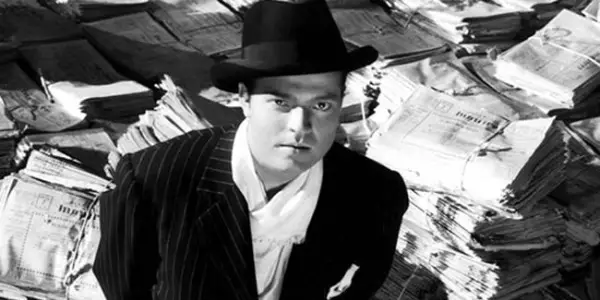
Quite possibly the most well-known of all the Best Picture snubs in history since Citizen Kane is known as one of the Best Pictures ever made. Ironically Welles has openly championed the work of John Ford, and has been known to say “I prefer the old masters; by which I mean: John Ford, John Ford and John Ford”.
1942 – Winner: Mrs. Miniver
What we remember: The Magnificent Ambersons
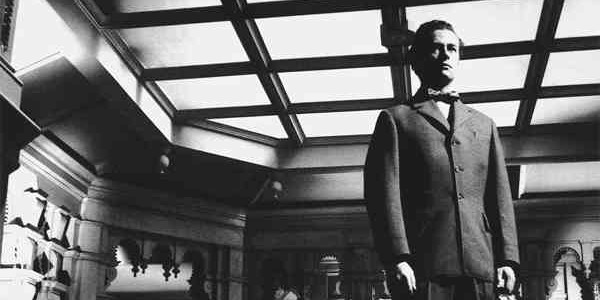
If Citizen Kane is one of the biggest-known snubs in the Academy’s history, then The Magnificent Ambersons must be in second place. Not to sound a grievance, but to acknowledge another “masterpiece come lately” which is The Magnificent Ambersons.
1943 – Winner: Casablanca
No Contender
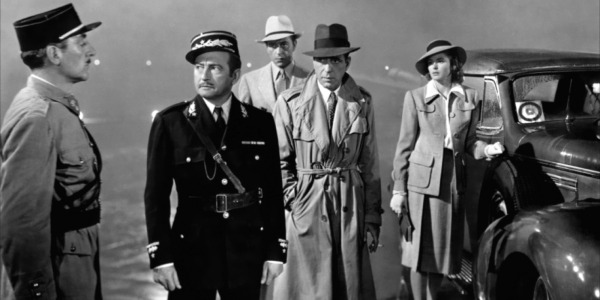
What more can be said about this film that hasn’t already been written, said, or reviewed? Well, at the risk of sounding redundant, Michael Curtiz’ wartime masterpiece deserves all the accolades it received. A must-see movie for nearly everybody.
1944 – Winner: Going my Way
What we remember: Double Indemnity
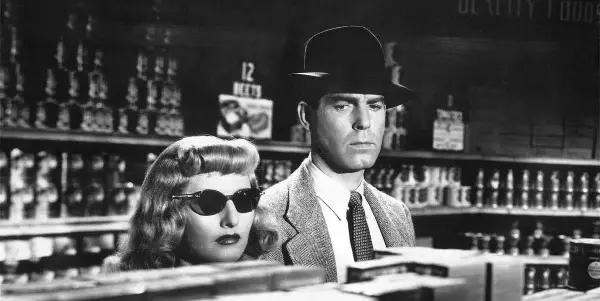
Along with John Huston’s The Maltese Falcon, Double Indemnity is considered to be a definitive film-noir title. All the great trademarks of the genre are present, the voice-over, the murder plot, the femme fatale, and, of course, Venetian blinds. A must see movie whose significance is a step beyond influence as it’s practically informed the language of cinema.
1945 – Winner: The Lost Weekend
No Contender
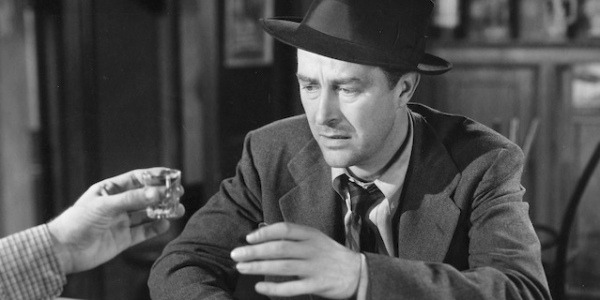
Billy Wilder’s cautionary tale of one alcoholism is perfectly written and acted. The Long Weekend delves into the self-destructive psychology of addiction without being heavy handed or preachy keeping the film consistently relevant.
1946 – Winner: The Best Years of our Lives
What we remember: It’s a Wonderful Life
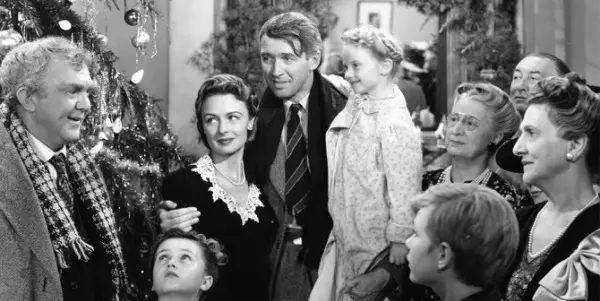
Frequently boxed in as a holiday movie Frank Capra’s seminal film still airs on major networks during the holidays and maintains an audience just as well as it did back in the early days of television. The film can be broken down into a series of iconic moments which are fixtures in the holiday season as well as cinema history.
1947 – Winner: A Gentleman’s Agreement
What we remember: Great Expectations
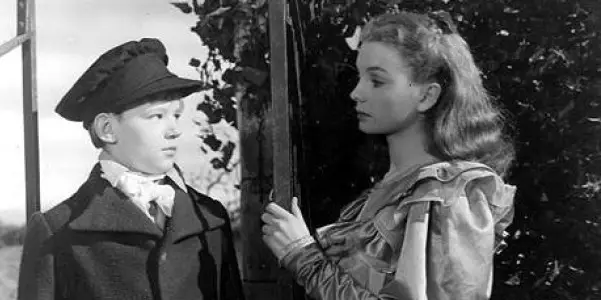
Before David Lean’s became the master of grandeur epic filmmaking, he was creating equally stunning adaptations of Charles Dickens and along with Oliver Twist, Great Expectations is one of the greatest films ever made.
1948 – Winner: Hamlet
What we remember: Treasure of the Sierra Madre
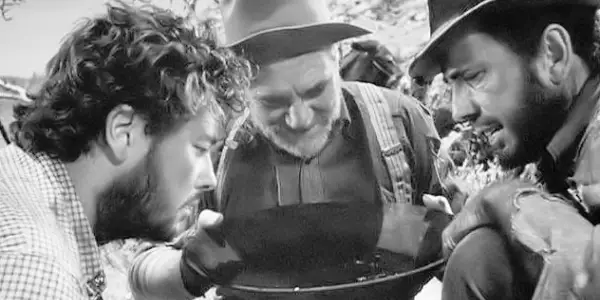
No one was able to bring Shakespeare to life better than Laurence Olivier, and Hamlet is a masterfully made movie. But the energetic high-stakes adventure from John Huston The Treasure of the Sierra Madre is one of those special movies that really delivers the goods as far as action entertainment.
1949 – Winner: All the King’s Men
No Contender
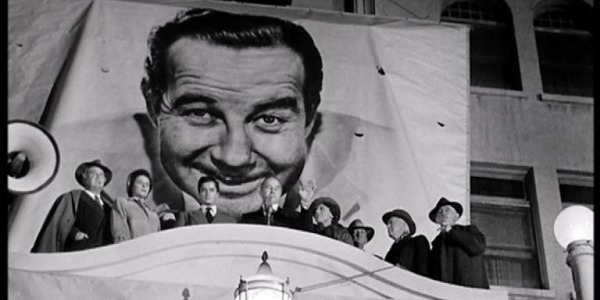
Superior direction by Robert Rossen, and performances from Broderick Crawford and Mercedes McCambridge (who also won Oscars for their performances) makes All the King’s Men a cut above the rest. Political intrigue from the late forties that would serve as an inspiration for films to come.
Here come the nineteenfifties!
1950 – Winner: All About Eve
What we remember: Sunset Boulevard
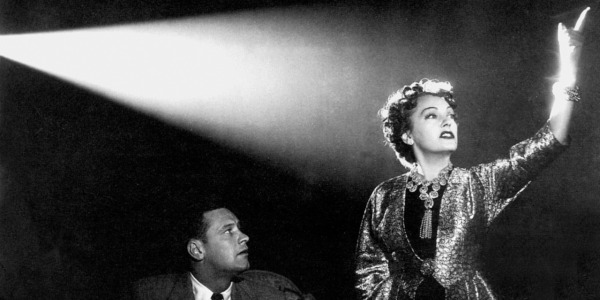
Another classic from Billy Wilder, whose darkly skewed humor and send-up of celebrity mentality made for one of the best movies about the movie business ever. Like most of Wilder’s films the script is spilling with fast-paced dialogue and famous quotes: ” I’m ready for my close-up, Mr. Demille” being most notable.
1951 – Winner: An American in Paris
What we remember: A Streetcar Named Desire
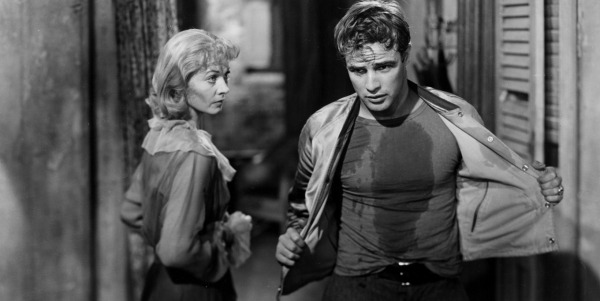
Marlon Brando and Elia Kazan would prove out as one of the great actor-director collaborations and A Streetcar Named Desire was a seedling of that partnership. Based on the famous Tennessee Williams play of the same name, Kazan’s film turned Marlon Brando into a sensation and is regarded as one of the all-time great films.
1952 – Winner: The Greatest Show on Earth
What we remember: High Noon
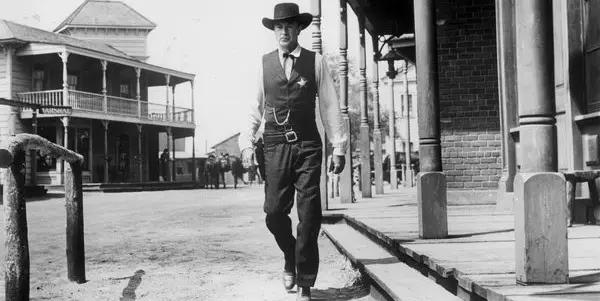
High Noon, a great vehicle for its star Gary Cooper, is hailed by many as one of the best westerns of the era. A well-known, and highly regarded film is still a staple in the genre and holds up as a sturdy and smart film.
1953 – Winner: From Here to Eternity
What we remember: Shane
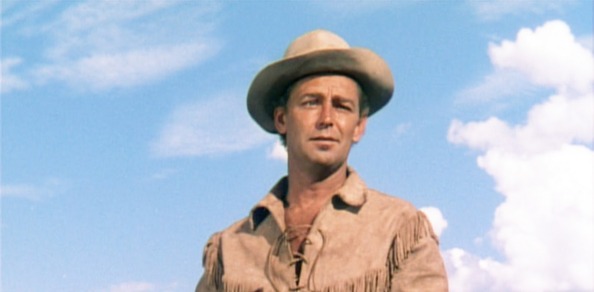
A classic tale of lone gunfighter has been a staple entry in Hollywood’s long history of classic westerns. Alan Ladd’s performance as reformed trigger-man has served as a model for following westerns for years to come.
1954 – Winner: On the Waterfront
No Contender
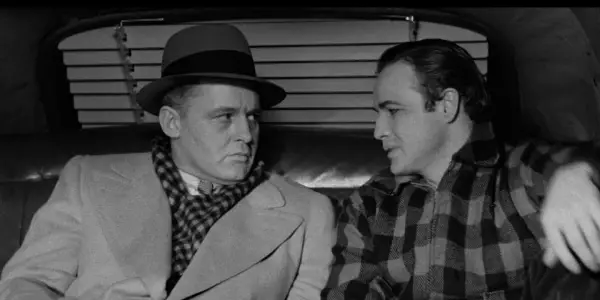
One can’t deny winners like this title, seeing as Elia Kazan’s On the Waterfront dramatized incidents inspired by real-life accounts of shady dealings going on in New York’s harbor unions. Time may take the edge off of some films but not this one.
1955 – Winner: Marty
What we remember: Mister Roberts
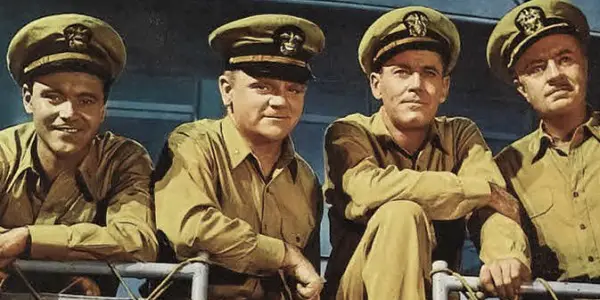
Major star power (James Cagney, Henry Fonda, Jack Lemmon, William Powell, Betsy Palmer, and Ward Bond) and sound direction from John Ford and Mervyn LeRoy made this wartime comedy become an indelible and poignant with each and every viewing.
1956 – Winner: Around the World in 80 Days
What we remember: Giant
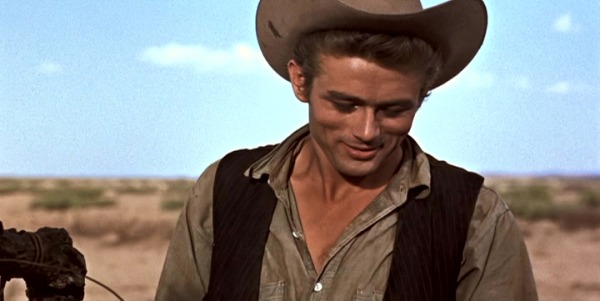
James Dean’s short-lived legacy reached height in his final screen appearance in George Stevens Giant. The title also serves as a description of the movie’s epic length and story that fits as a perfect cap to Dean’s trilogy of performances, following Rebel Without a Cause and East of Eden.
1957 – Winner: The Bridge on the River Kwai
No Contender
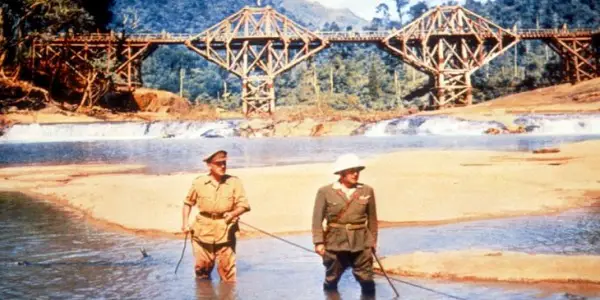
David Lean’s epic wartime saga stands the test of time due to the fact that it relies on great writing and superlative characterizations. Directed with near perfection by one of the medium’s greatest epic storyteller. The finale will still stun modern-day viewers thanks to physical effects and superb cinematography.
1958 – Winner: GiGi
What we remember: The Defiant Ones
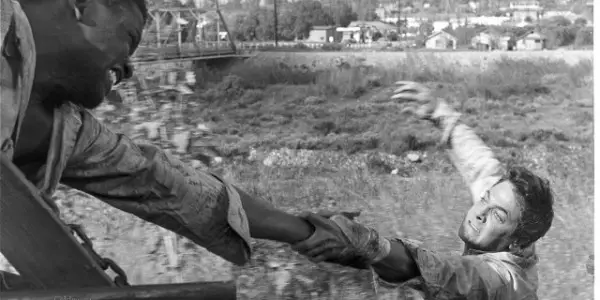
Stanley Kramer’s tale of two escaped convicts handcuffed together became a model for the prison escape/fugitive sub-genre while providing a telling treatment of racial tensions. The Defiant Ones stands out as both a taught thriller and pointed special commentary that works on both levels.
1959 – Winner: Ben-Hur
What we remember: Anatomy of a Murder
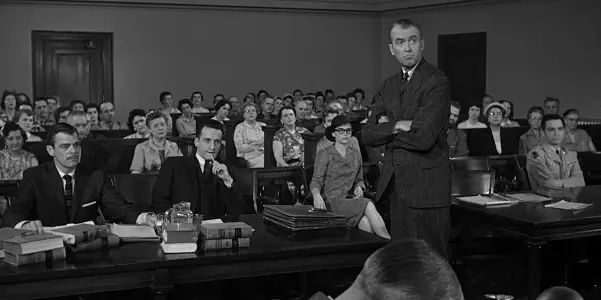
Sure, Ben-Hur is a mega epic that made tons of money and is a staple of American cinema, but Otto Preminger’s courtroom drama really gave way to the courtroom drama as we know it. Without it we would not see the genre in film and television the way we do today.
Onwards, to the sixties.
1960 – Winner: The Apartment
No Contender
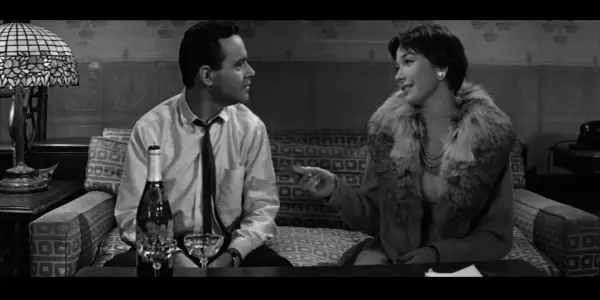
Occasionally somber, frequently funny, and always a moving drama of romance and office politics, Billy Wilder’s The Apartment is as close to perfect as a film can be. With all these accolades, it needs to be seen to truly understand the potent morality tale of The Apartment.
1961 – Winner: West Side Story
No Contender
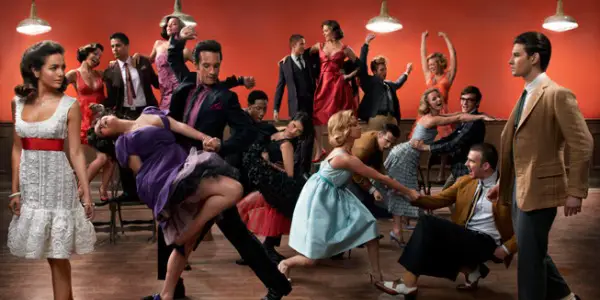
Singing and dancing gangs might seem like a laughable idea by today’s standards but West Side Story is a lively and enjoyable exercise in musical theater brilliantly brought to the screen. Leonard Bernstein, and Steven Sondheim’s score just add to the fun.
1962 – Winner: Lawrence of Arabia
No Contender
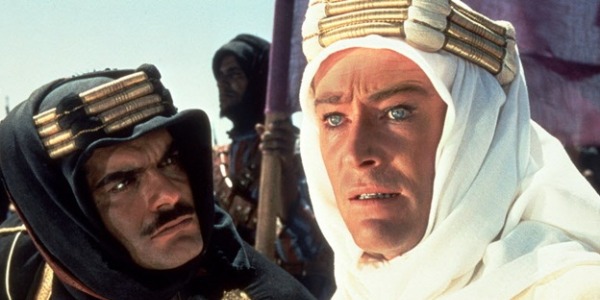
It’s easy to be contrary, especially when it comes to classics like such as Lawrence of Arabia. Even though most critics and top movie polls bash you over the head with films like this it’s impossible to ignore great work when you see it, and Lawrence of Arabia is nothing short of a masterpiece.
1963 – Winner: Tom Jones
What we remember: How The West Was Won
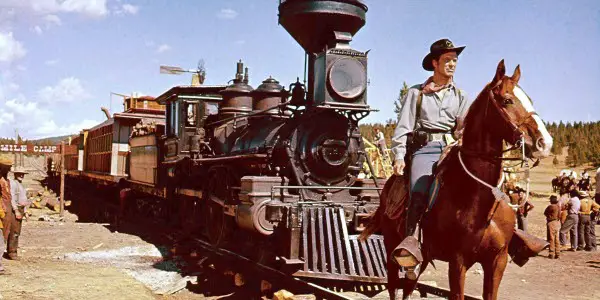
Bringing three of the genre’s highest profile directors: John Ford, Henry Hathaway, and George Marshall to direct an epic tale of the pioneering west is a massive film in best sense of the word. And history buffs, cinephiles, and fans of the western genre continue to hold this film in high regard.
1964 – Winner: My Fair Lady
What we remember: Dr. Strangelove

At the time of the Cold War what does young wunderkind director Stanley Kubrick do? He decides to direct a black comedy and satirizes the whole hot button affair of nuclear devastation. The lasting impression of Peter Sellers (playing three roles) wheeling himself around as the titular character has left more of an impression in the history of cinema than any other role of his career.
1965 – Winner: The Sound of Music
What we remember: Doctor Zhivago
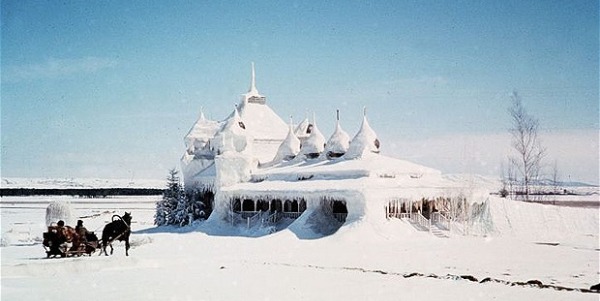
Another masterfully created epic adaptation from director David Lean is assembled with the goods that make for a perfect epic. Romance, war, revolution, and an ice palace, what more could you ask for? Not to mention Alec Guinnes, Omar Sharif, Julie Christie, Tom Coutenay, Rod Steiger, and a star making vehicle for Geraldine Chaplin, who are all in top form.
1966 – Winner: A Man for all Seasons
What we remember: Who’s Afraid of Virginia Woolf?
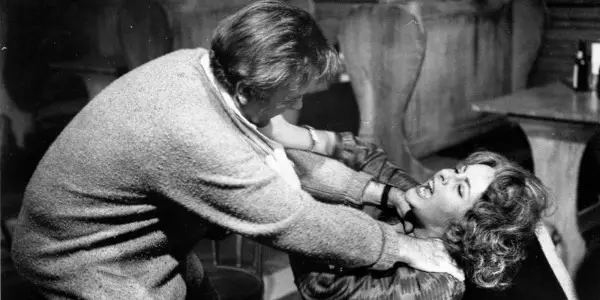
Perhaps it was the controversy of the material or its substantial value as a fully fledged adult drama, but Mike Nichols’ debut feature is still a topic of conversation among cinephiles.
1967 – Winner: In the Heat of the Night
What we remember: Bonnie & Clyde

Arthur Penn’s 1967 classic might have been too violent to take home the statue for Best Picture but the film hasn’t left our memories as one of the best American movies of all time. Despite their phenomenal careers that followed the success and controversy of the film, Warren Beatty and Faye Dunaway will always be linked to these characters due to their stellar performances.
1968 – Winner: Oliver!
No Contender
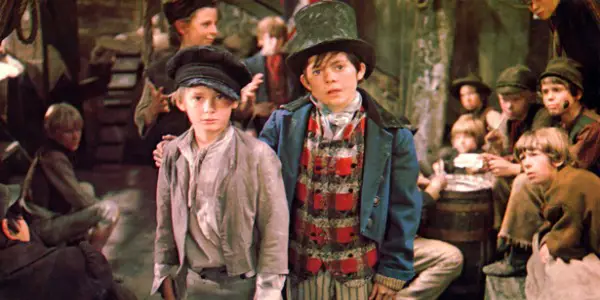
Dickens’ classic tale has had many lives throughout the years, and this winning mixture of musical theater took to the screen remarkably well. Special consideration Oscar was given for choreography, and five other Oscars were awarded to Carol Reed’s Oliver! at the 41st Academy Awards.
1969 – Winner: Midnight Cowboy
No Contender
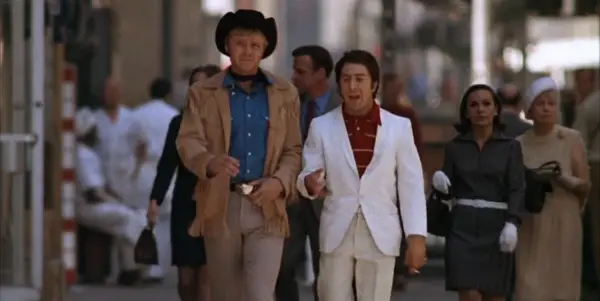
John Schlesinger’s wonderfully realized tale of friendship has aged in the best sense of the word serving as a time capsule into New York City of the late 1960’s as well as a hallmark entry in the New Hollywood Movement. Tone and execution are perfect, as Midnight Cowboy serves as one of the major films that broke through the walls of Hollywood’s then stagnating studio system.
And now, the seventies!
1970 – Winner: Patton
What we remember: MASH
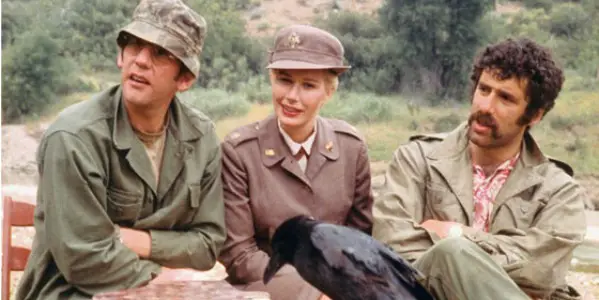
Robert Altman said that while he was directing MASH, “20th Century Fox had two other war films going on, Patton and Tora! Tora! Tora!” and the studio left Altman’s masterpiece on the back burner because, as was the case for many classics, no one believed in it. But MASH went on to become an iconic classic, launching maverick director Robert Altman’s career, as well as a hit television series.
1971 – Winner: The French Connection
What we remember: A Clockwork Orange
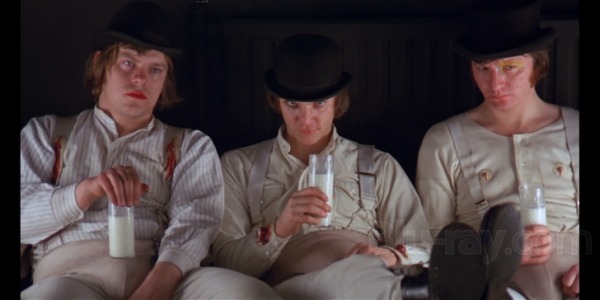
A hard call to make when you consider just how good and influential William Friedkin’s film is. But as far as modern-day familiarity A Clockwork Orange has more staying power. Considering how controversial it was upon its release, and the devoted cult following that has grown around Kubrick’s classic, its place in cinema is well solidified.
1972 – Winner: The Godfather
No Contender
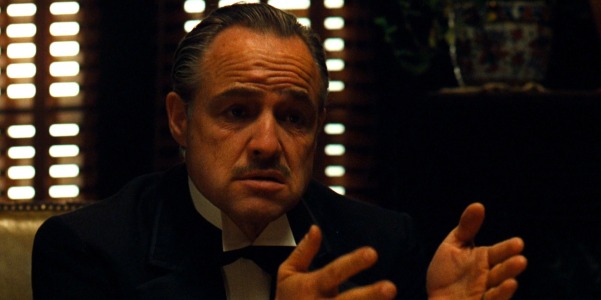
Another case of a film no one believed in that became one of the biggest movies in history. Francis Ford Coppola couldn’t have been aware of the upcoming craze that would follow the success of his sweeping mafia saga. Some refer to The Godfather as “The 1970’s answer to Gone With the Wind”, and that basically sums it up the importance of this movie perfectly.
1973 – Winner: The Sting
What we remember: American Graffiti
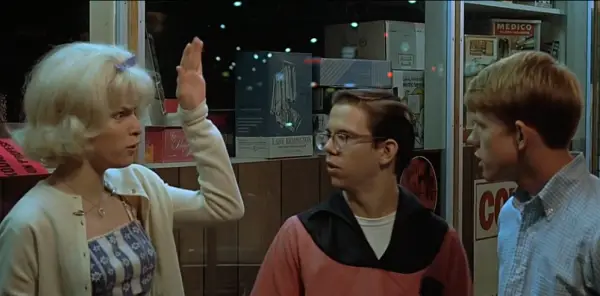
“Where were you in ’62?” reads the tagline of George Lucas’ wonderfully crafted multi-character mosaic following graduation day in 1962. He was awarded an Achievement in character development, sound editing, and the film served as springboard for the careers of Harrison Ford, Richard Dreyfus, Candy Clark, and Ron Howard.
1974 – Winner: The Godfather II
No Contender
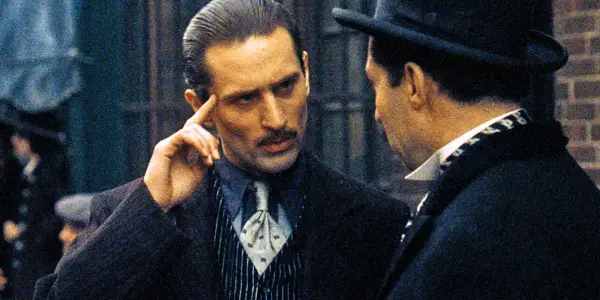
1974 was an exciting year for the Academy as well as Francis Ford Coppola, having two of his best films contending for the Best Picture nomination, The Godfather II and The Conversation. The Godfather II is without a doubt one of the best films, and its significance in history is indisputable.
1975 – Winner: One Flew Over the Cuckoo’s Nest
What we remember: Jaws
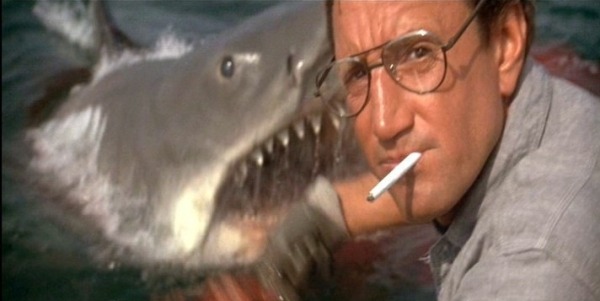
Spielberg’s hugely successful thriller that broke box office records launched a slew of sequels and is regarded by many as one of the best horror films of all time. Jaws made its way to the Best Picture nomination and lost, but it’s no contest which one is more memorable.
1976 – Winner: Rocky
What we remember: Taxi Driver
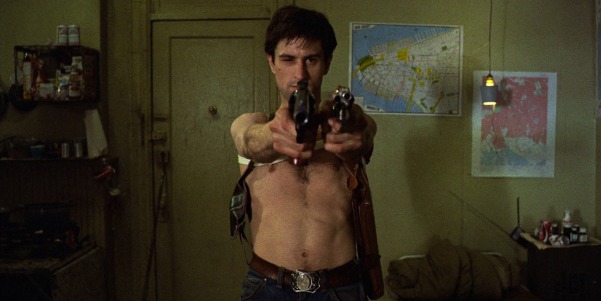
Another A-list cult movie. Scorsese and screenwriter Paul Schrader created something darker that struck audiences and still does to this day. Robert DeNiro’s mohawk sporting, gun-toting vigilante as an idyllic image of cinema and cultural rebellion.
1977 – Winner: Annie Hall
What we remember: Star Wars
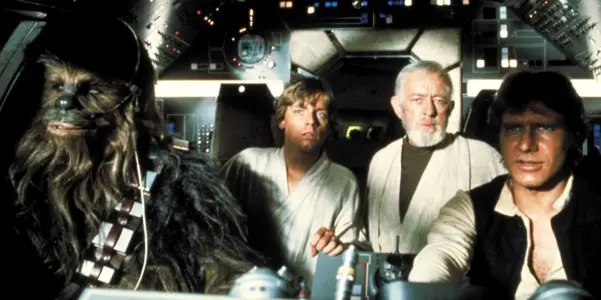
It’s unlikely that the Academy would give the statue for Best Picture to George Lucas’ Star Wars, and as history has shown us they didn’t. Star Wars isn’t just a movie to some people, but a way of life.
1978 – Winner: The Deer Hunter
No Contender
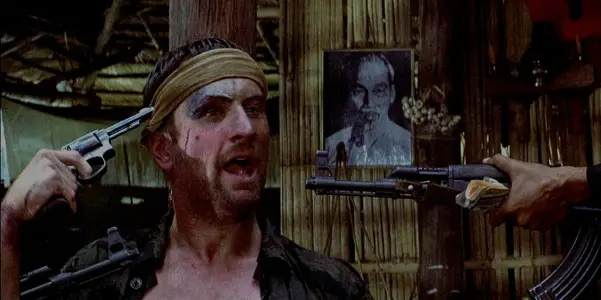
Before Michael Cimino shot himself in the foot with the Heaven’s Gate debacle, studios had unwavering faith in the young director’s meteoric talent which reached its apex with The Deer Hunter. Unrelentingly intense and powerful, still the masterpiece it was in 1978.
1979 – Winner: Kramer vs. Kramer
What we remember: Apocalypse Now
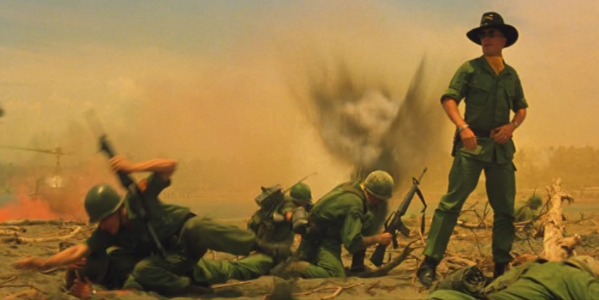
Consistently referred to as one of the best war films of all time, Apocalypse Now, with its many iconic scenes and quotes, is an epic-scaled adaptation of Joseph Conrad’s Hearts of Darkness transplanted to the madness of the Vietnam war. Visionary direction and superior storytelling put Apocalypse Now in the masterclass of American cinema.
And now, the 1980s…
1980 – Winner: Ordinary People
What we remember: Raging Bull
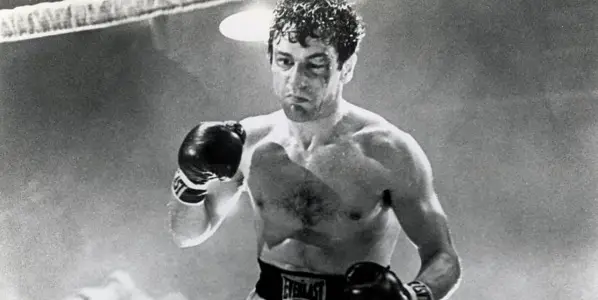
It’s almost amazing that Martin Scorsese’s Raging Bull wasn’t awarded Best Picture. Rocky be the most popular boxing movie, but Raging Bull is the more dynamic and substantial character-driven movie. Robert DeNiro brings fire to the screen in his wild performance and it might be the best of his career.
1981 – Winner: Chariots of Fire
What we remember: Raiders of the Lost Ark
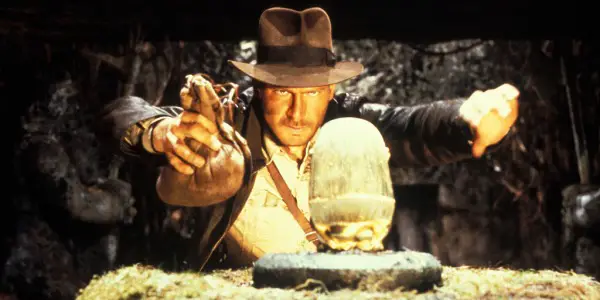
The massive popularity of Raiders of the Lost Ark doesn’t need much of an explanation seeing as it led to one of the funnest franchises in film history led by one of cinemas most beloved fictional heroes.
1982 – Winner: Gandhi
What we remember: E.T. The Extra-Terrestrial
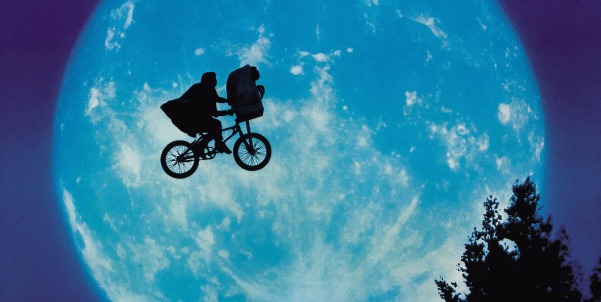
The winner science fiction film that centers on young kids’ relationship with a kindly alien introduced the world to cinemas friendliest terrestrial that captured the hearts of millions, and continues to do so for future generations.
1983 – Winner: The Terms of Endearment
No Contender
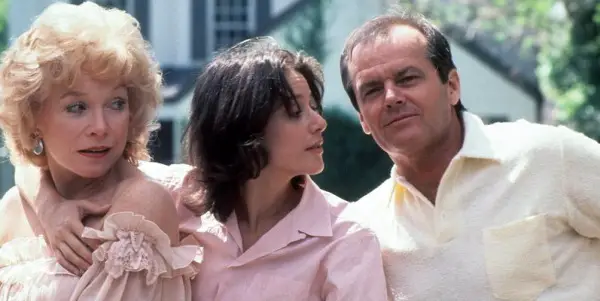
Some films become later day classics, others are a hit right out of the gate, and that is the case with James L. Brooks’ Terms of Endearment. The film was a sweep at the ceremony (with eleven nominations and five wins) and seemed to hit all the right notes in 1983, as well as today.
1984 – Winner:Amadeus
No Contender

Milos Forman’s sumptuous retelling of Mozart’s career has taken some flak for taking some dramatic liberties, but the film’s epic scope and ambition never pale, and the film looks just as good now as it did in 1983. F. Murray Abraham and Tom Hulce deliver some of the greatest performances of their careers.
1985 – Winner: Out of Africa
What we remember: The Color Purple
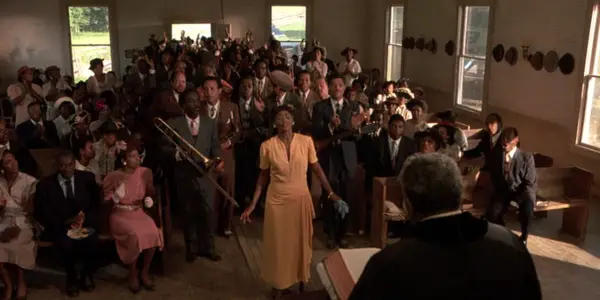
At this point in time in seemed like Steven Spielberg could do no wrong, and The Color Purple is proof of the director’s versatility and talent. Controversy followed its release but as the fodder faints, its strength has grown. A great vehicle for its cast that brought Oprah Winfrey to the screen for the first time and kick-started the acting career of Whoopi Goldberg.
1986 – Winner: Platoon
No Contender
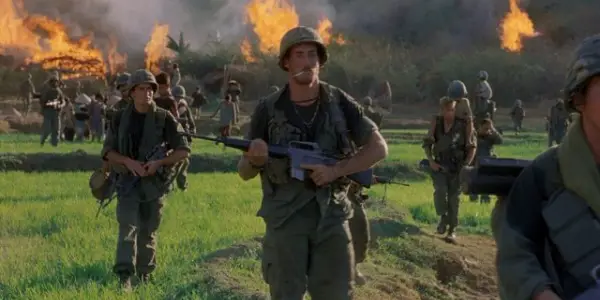
Easily one of the best films about the Vietnam War as it’s seen through the eyes of the auto-biographical catalyst whose loyalties are torn during a power struggle in his platoon as they fight with themselves and their common enemy. Powerfully directed with honesty and perfection by Oliver Stone.
1987 – Winner: The Last Emperor
No Contender
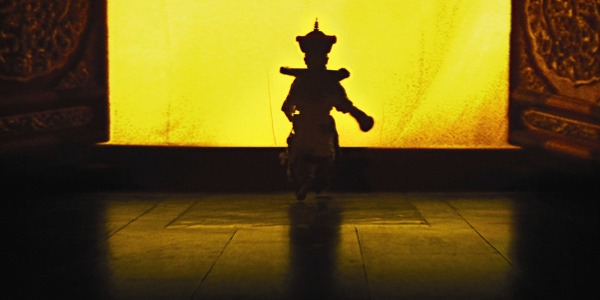
Bernardo Bertulucci’s sweeping epic about the Emperor Pu-Yi’s reign as a small child as he becomes ensnared in the Japanese occupation of the puppet state of Manchuko. Politics and humanity are presented with deft perfection and the period atmosphere are impossible to recreate or forget.
1988 – Winner: Rain Man
No Contender
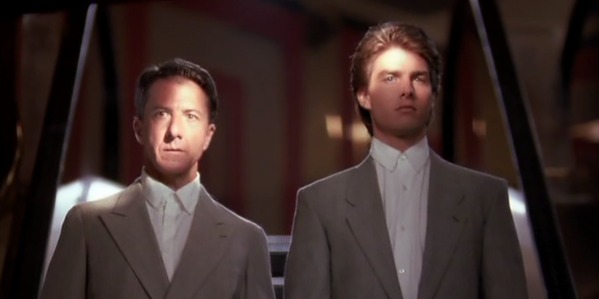
Although there are some issues regarding its depiction of autism, Rain Man stands on its own two feet thanks to its two leads. Dustin Hoffman and Tome Cruise deliver career-defining performance that are impossible to forget and make the otherwise flawed aspects of this film more and more memorable over the years.
1989 – Winner: Driving Miss Daisy
What we remember: Every Other Nominee
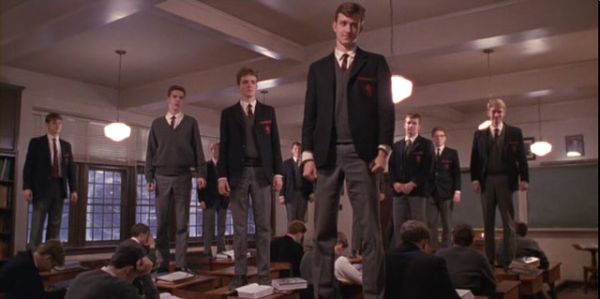
The question for this year should be “Why we should all forget Driving Miss Daisy”, I stated earlier that this wouldn’t be a biased review but Driving Miss Daisy is just a head-scratcher when you think about it winning the Academy Award for Best Picture. Considering My Left Foot, Born on the Fourth of July, Dead Poet’s Society, and Field of Dreams were all nominated, it’s safe to say these are all more memorable titles than this year’s winner.
Here come the nineties…
1990 – Winner: Dances with Wolves
What we remember: Goodfellas
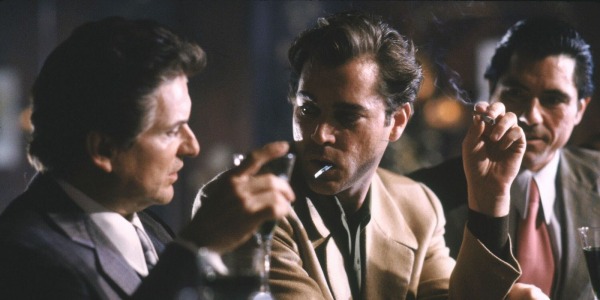
“What? You think I’m funny? Funny like a clown?” An iconic line from an iconic film. Martin Scorsese directed what many consider to be one of the best gangster films of all time and for good reason. Goodfellas still hold audiences captive and has barely seemed to ebb in popularity over the years.
1991 – Winner: Silence of the Lambs
No Contender
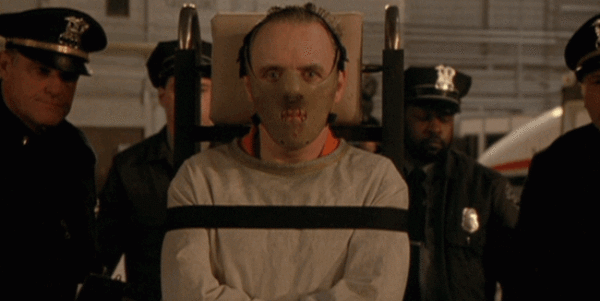
Jonathon Demme achieved what many thought impossible, and made an Oscar-winning horror/thriller. Silence of the Lambs has endured over the years with its many thrilling moments and terrific lead performances from Anthony Hopkins and Jodie Foster. And thanks to shows like Hannibal, the film is enjoying more popularity spanning generations.
1992 – Winner: Unforgiven
No Contender
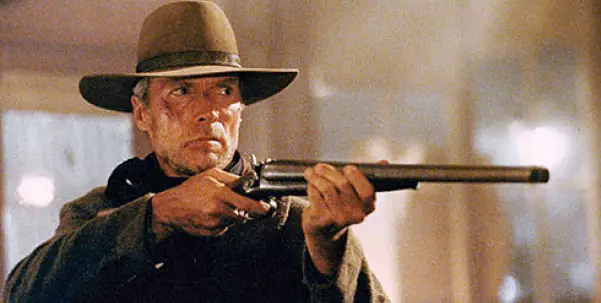
Although the five nominations this year have endured their popularity over the years, Clint Eastwood’s murky revisionist western seems to be the most sustained and referential title of the year. Despite his neanderthal politics he knows how to direct a damn fine movie.
1993 – Winner: Schindler’s List
No Contender

1993 had some good titles to boast in this category, In the Name of the Father, The Fugitive, The Piano, and Remains of the Day, but Schindler’s List is a one-of-a-kind cinematic experience and is just as potent today as it was over twenty years ago.
1994 – Winner: Forrest Gump
What we remember: Pulp Fiction
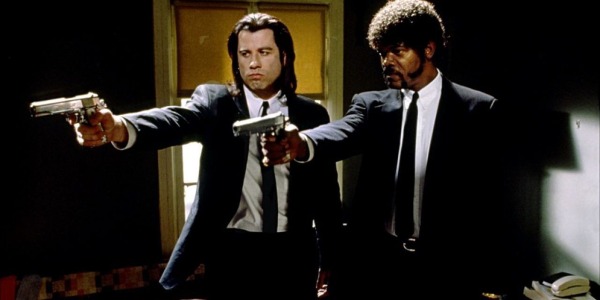
Forest Gump is indeed a likable crowd-pleaser as well as infinitely quotable. But Quentin Tarantino threw the kitchen sink (plus some) into the pop culture phenomena that is Pulp Fiction. Forrest Gump might be a classic, but Pulp Fiction is legendary.
1995 – Winner: Braveheart
What we remember: Apollo 13
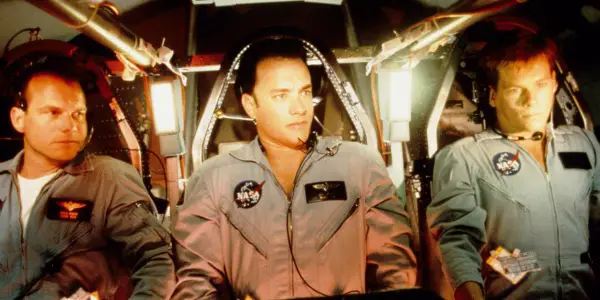
Given Mel Gibson’s meltdown and vile comments, common moviegoers are more likely to forget the ultra-violent (and homophobic) epic about Scottish liberation. Almost comical in their contrasting ideals, Ron Howard’s persona and film are a pleasing counter-offer to this year’s Best Picture winner.
1996 – Winner: The English Patient
What we remember: Fargo
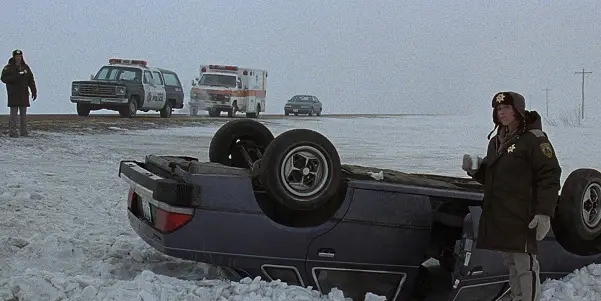
Upon its release people were swept up in the epic love story that was The English Patient. Nineteen years later it seems the film is more remembered thanks to the Seinfeld episode where Elaine lost her job, boyfriend and respect of her peers for being the only person who hated the movie. It seems that the darkly comic caper/heist Coen film Fargo has stayed with the public over the years as the writing directing team seem to outdo themselves with each subsequent film they release. And let’s not forget Forgo spawned a highly successful TV series last year.
1997 – Winner: Titanic
No Contender
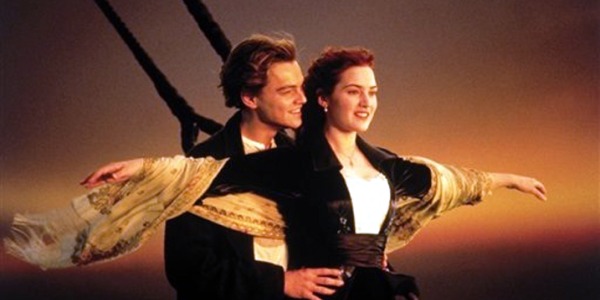
Sure, it’s not a “perfect” film, and it’s rife with cliche, but everyone was in love with this film when it came out, and I don’t think anyone was surprised when it swept the Oscars, especially the Best Picture nomination.
1998 – Winner: Shakespeare in Love
What we remember: Saving Private Ryan
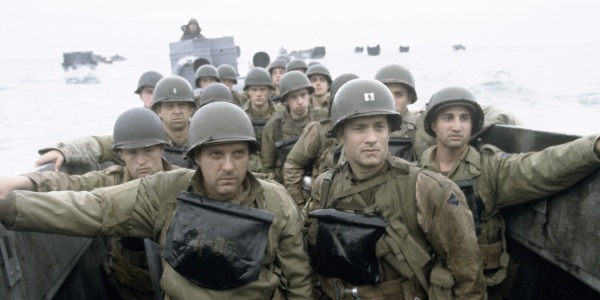
If you ask anyone who was around, 1998 was the year of Saving Private Ryan. And yet, Shakespeare in Love took home the Oscar for Best Picture, a movie that has its good qualities for sure, but the former has left more of an impression over the years.
1999 – Winner: American Beauty
No Contender
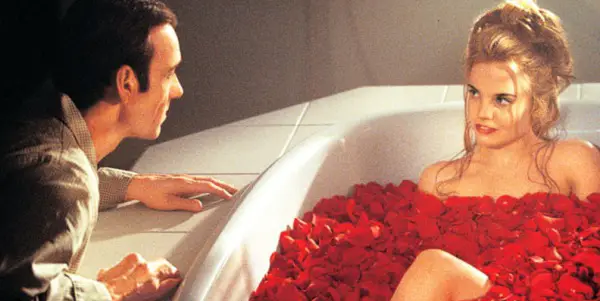
A wonderful film the proves that artful movies can be a commercial and critical success. American Beauty also gave way to the careers of its writer (who also won the Oscar for its script) Alan Ball, and its director Sam Mendes, as American Beauty was his directorial debut.
Moving on to the zeroes!
2000 – Winner: Gladiator
No Contender
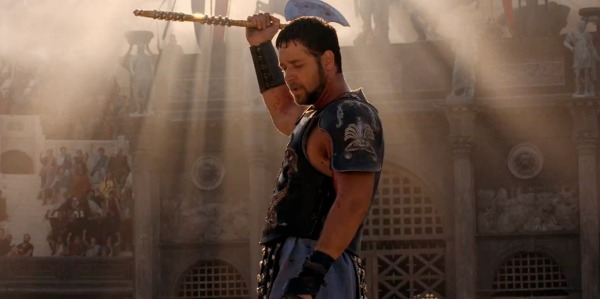
A real return to form for its veteran director Ridley Scott whose epic scope and direction make for a truly memorable tale of good and evil and the nature of violence and entertainment.
2001 – Winner: A Beautiful Mind
What we remember: The Lord of the Rings: The Fellowship of the Ring
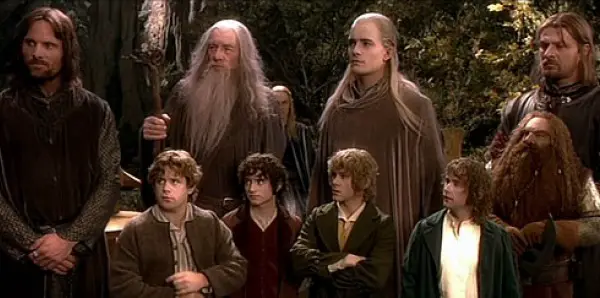
Peter Jackson’s ambitious first entry in his Lord of the Rings trilogy is a benchmark example of what can happen when a franchise is achieved with clarity and diligence.
2002 – Winner: Chicago
What we remember: Lord of the Rings: The Two Towers
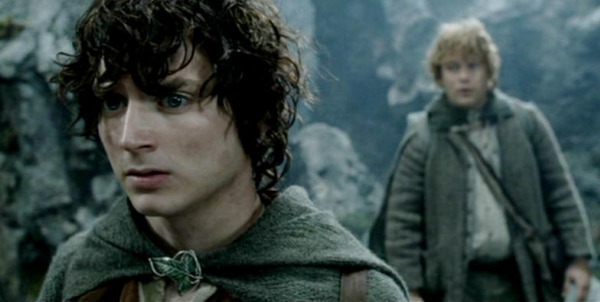
It may seem redundant to trilogy all three of Peter Jackson’s Lord of the Rings trilogy, yet all three films are widely embraced. Not only by fans of Tolkien completists but the general public as well.
2003 – Winner: Lord of the Rings: The Return of the Ring
No Contender
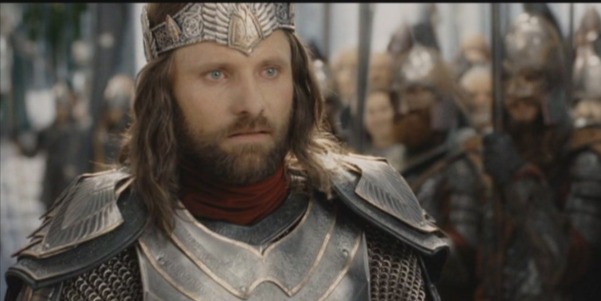
It’s hard to argue the triumph that surrounds this movie: it won eleven academy awards, and finalized one of the most successful trilogies in film history. Peter Jackson established himself as a major voice in cinema with this towering epic that expanded the imagination and scope of what cinema can achieve.
2004 – Winner: Million Dollar Baby
What we remember: The Aviator
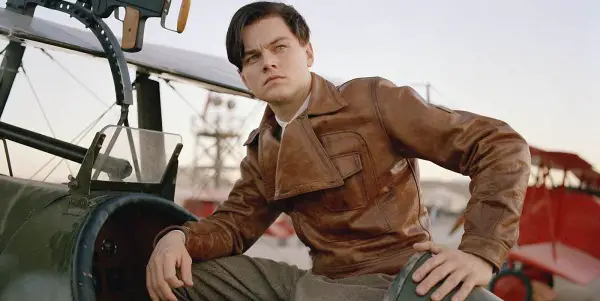
Martin Scorsese’s partnership with Leonardo DiCaprio was at the height at this point in time, and Scorsese’s direction paired with DiCaprio’s performance make for a stunning biopic of one of history’s most eccentric figures in film and politics.
2005 – Crash
What we remember: Brokeback Mountain
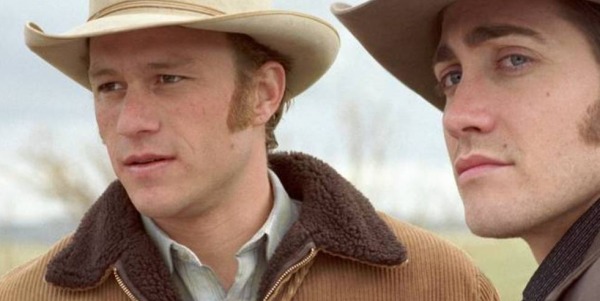
Due to the unnecessary level of controversy of Ang Lee’s Brokeback Mountain, it seems like the Academy overlooked this challenging and sustainable film. It swept The Golden Globes, and critic prizes around the country and yet when it cam to the Best Picture nomination it fell out of orbit. Let the ongoing sustainable fan base do the talking.
2006 – Winner: The Departed
No Contender
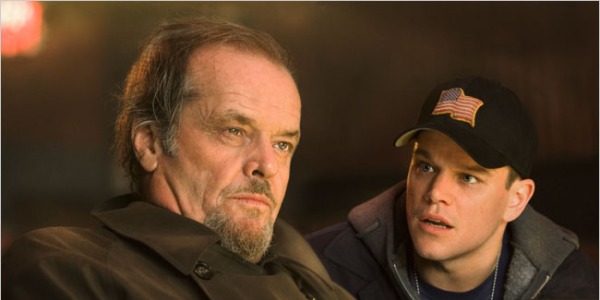
If the Academy wasn’t going to award Martin Socrsese for Goodfellas, Casino or Gangs of New York, the double win for director and Best Picture were overdue for the director and The Departed is a thrilling and exciting film that stands alongside the director’s previous, overlooked efforts.
2007 – Winner: No Country for Old Men
What we remember: There Will Be Blood
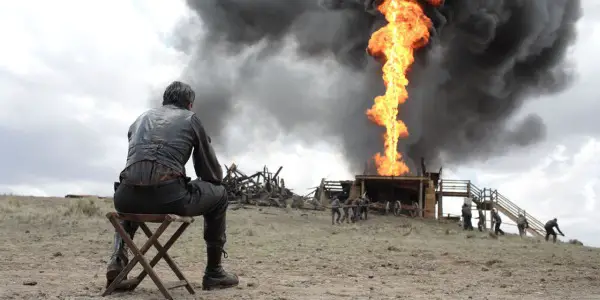
It may seem blasphemous to not be rooting for the Coen Brothers’ Best Picture win, but P.T. Anderson’s stunningly realized tale of greed and obsession regarding our economic concern with oil, There Will Be Blood is more relevant than ever. The movie also spurned years of Daniel Plainview imitations, say what you will about its bleak tone the film has resonance.
2008 – Winner: Slumdog Millionaire
What we remember: The Curious Case of Benjamin Button
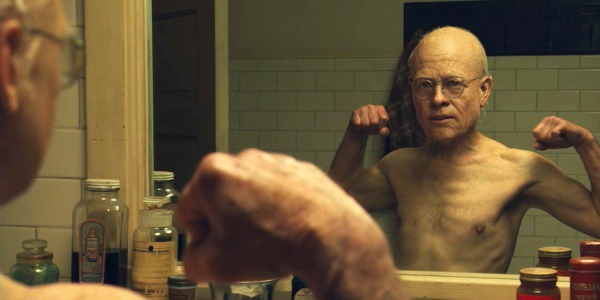
During the 2008 Academy Awards it seemed like Slumdog Millionaire was the the only film that mattered. Thanks to the special attention from The Criterion Collection, David Fincher’s stylized epic tale of one man’s experience through history is a memorable epic of human emotion and history.
2009 – Winner: The Hurt Locker
What we remember: Inglorious Basterds
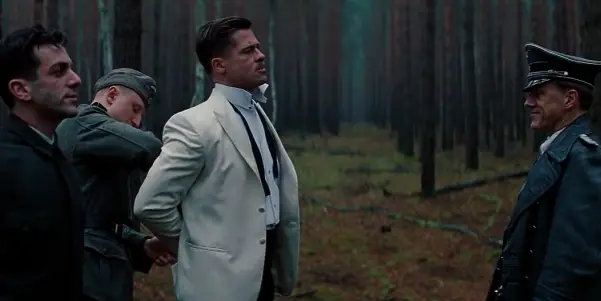
No matter what is nominated, next to a Quintin Tarintino film, the public and cinephiles around the world will always hold Tarintino’s movie closer in their memories than anything else. And as time goes on, Inglorious Basterds has only grown in popularity.
And now, the final four, moving on to the ’10s:
2010 – Winner: The King’s Speech
What we remember: Inception
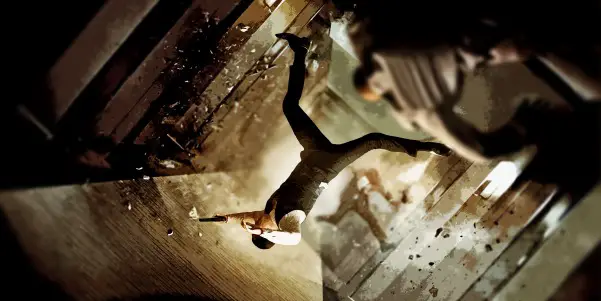
At the time it seemed odd that Christopher Nolan’s ambitious tale of dream espionage earned a Best Picture nomination. But the challenging nature of the film seems to have only drawn in more and more viewings as time passes.
2011 – Winner: The Artist
What we remember: The Tree of Life

Even among Malick fans, it is agreed upon that not even his films are for everyone. And it was a surprise that, after all the critical disagreement regarding The Tree of Life, it was nominated for a Best Picture award. But as time moves on this movie seems to be the only title that has grown in strength.
2012 – Winner: Argo
What we remember: Django Unchained
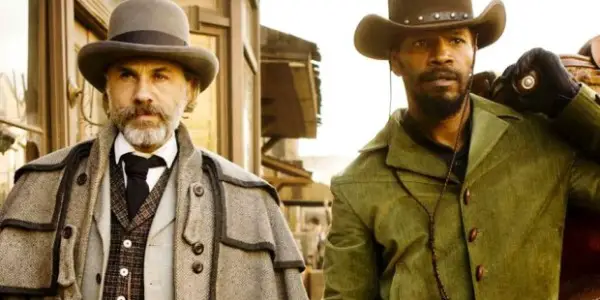
If Argo caused a splash, Django Unchained caused an uproar, one that hasn’t settled over the three years since it was released. Like the case is with all of Tarintino’s nominated movies this one is the most memorable compared to the other nominees.
2013 – Winner: 12 Years a Slave
What we remember: Gravity
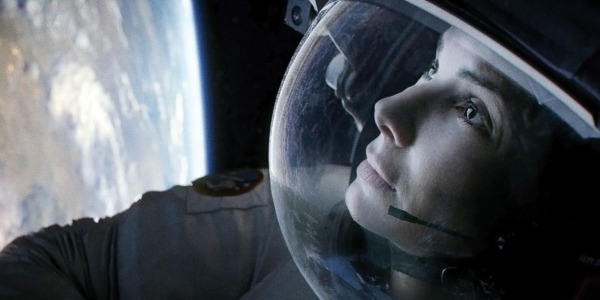
Maybe the film’s second life on home video (3D/Blu-Ray releases) Gravity has earned nearly 60,000,000 dollars in home video sales outselling any other film that year. Its fast-paced story, tight narrative and performances make it the most unique and fascinating films of that year.
2014 – Winner: Birdman
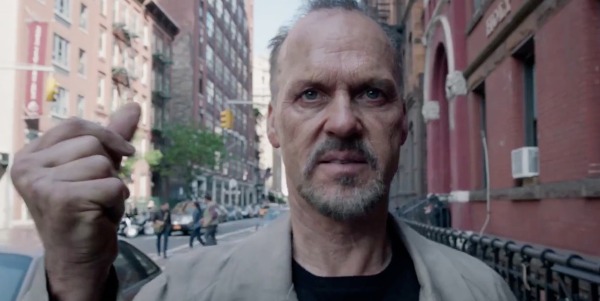
What will we remember?
Well, I might be speaking for only some that Birdman winning Best Picture came as a surprise given its anarchistic style. Especially when it seemed like people were on the Boyhood train following the attention it got at The Golden Globes and favorable critical acclaim following its wake. Will people by raving about Richard Linklater’s epic tale of growing up in America, or will they be pulling for Wes Anderson’s The Grand Budapest Hotel? There were a lot of good contenders this past year, but who, or what will people be talking about years from now?
What are your thoughts about the past Best Picture winners? Were there any surprises? Which movies on this list do you remember most fondly?
Share your thoughts below!
(top image: Birdman – source: Fox Searchlight Pictures)
Does content like this matter to you?
Become a Member and support film journalism. Unlock access to all of Film Inquiry`s great articles. Join a community of like-minded readers who are passionate about cinema - get access to our private members Network, give back to independent filmmakers, and more.
Massive film lover. Whether it's classic, contemporary, foreign, domestic, art, or entertainment; movies of every kind have something to say. And there is something to say about every movie.













